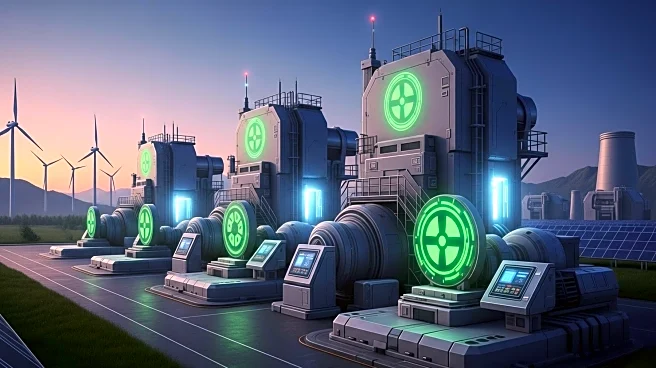What's Happening?
Nuclear waste recycling is gaining traction as a strategic imperative in the global energy transition. Technologies like pyro-processing and Curio's NuCycle are revolutionizing the management of spent nuclear fuel, enhancing proliferation resistance and reducing radioactive waste. The nuclear power market is expanding, driven by the need to decarbonize economies and meet rising electricity demand. Small Modular Reactors (SMRs) are contributing to this growth, with projections indicating significant capacity increases. Government policies and private-sector investments are accelerating the adoption of advanced nuclear technologies.
Why It's Important?
Effective nuclear waste recycling is crucial for the long-term viability of nuclear energy as a clean power source. By addressing waste management challenges, these technologies can enhance the sustainability and safety of nuclear power, making it a more attractive option for decarbonization efforts. The sector's growth presents substantial investment opportunities, with potential economic and geopolitical benefits. As nuclear energy becomes a more integral part of the clean energy mix, advancements in waste recycling will play a pivotal role in shaping the future of energy production.
What's Next?
Continued innovation in reactor design and waste management practices is expected, with international collaboration fostering global standards. The U.S. Department of Energy's Advanced Reactor Pilot Program aims to fast-track commercial licensing for advanced reactors. Private-sector momentum, including long-term power purchase agreements and increased investments, will likely drive further advancements in nuclear technologies.
Beyond the Headlines
The development of nuclear waste recycling technologies raises ethical and environmental considerations. Balancing the benefits of nuclear energy with the challenges of waste management requires careful policy and regulatory frameworks. The sector's evolution may influence broader discussions on energy security, environmental sustainability, and international cooperation.








